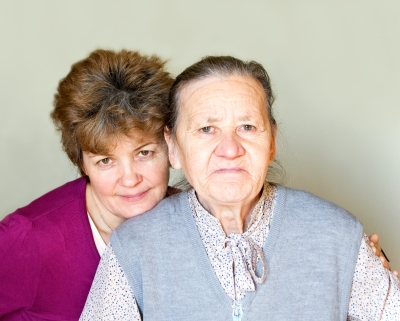Caring for a loved one with Alzheimer’s can take a lot of time and patience, and can be frustrating at times. According to the Alzheimer’s Association, in 2012, over 15 million caregivers and family members spent 17 billion hours caring for people with the condition.
If you have a friend of loved one with Alzheimer’s, how you interact with that person can affect the way the disease progresses and affects his/her memories and skills. Here are 7 ways you can reach out and provide assistance:
If you have questions, just ask. Beth Kallmyer, MSW, director of family and information services at the Alzheimer’s Association, suggests that being very direct, respectful, and upfront with loved ones in the early stages of Alzheimer’s. Ask them the best way to reach out and maintain connections.
Simplify speech. When spending time with someone who is past the early stages of Alzheimer’s, talk more slowly and use simplified language. Keep your sentences short and your words clear and let the patient finish words and sentences.
Identify appropriate activities. If you’re looking for an activity to do with a loved one, keep in mind things he/she enjoyed earlier in life. If Grandma with Alzheimer’s liked to cook, direct her toward a simple job preparing food that she can safely handle.
Make it easier to have fun. If a loved one enjoyed playing a specific game, it is okay to modify the rules to make it easier. Also consider choosing a game that’s similar but simpler than old favorites, Kallmyer suggested.
Try a special board game. The board game called “Making Memories Together” was specially created for people with dementia and their loved ones to play together. Players create memory cards that help to elicit memories so patients with Alzheimer’s can keep them as keepsakes.
Motivate with music. Music can help summon up memories and give the person a chance to move to the music. Play something that does not have commercials, such as tapes, CDs, or digital music files.
Be attentive. National Institutes of Health recommends when interacting with a loved one with Alzheimer’s, be aware if he/she is getting agitated or frustrated. If looking at photos, which is very common, be sure to refrain from asking what is going on in the photo because patients can often get frustrated that they do not remember what is going on.
Resource: http://www.everydayhealth.com/alzheimers-photos/alzheimers-activities.aspx#/slide-10




